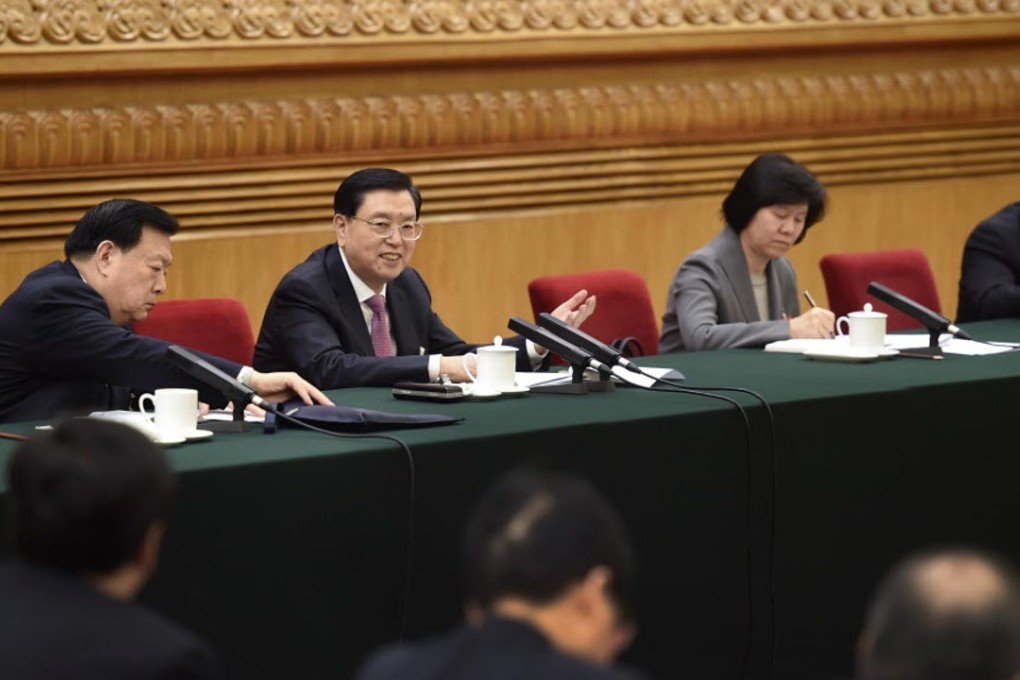‘Street politics could tarnish Hong Kong’s image,’ NPC chairman Zhang Dejiang warns
NPC chairman warns clashes such as Mong Kok riot could hurt HK’s economic development

Hong Kong should avoid politicising its economic problems and resorting to “street politics” as it will tarnish the city’s image and scare off foreign investors, the state leader overseeing Hong Kong affairs warned yesterday.
National People’s Congress chairman Zhang Dejiang (張德江) also praised Hong Kong people for being intelligent, and said they understand that the city’s success was built on its economic achievement and its proximity to the mainland.
“The opportunity must not be lost, because it might not come back again,” Zhang was quoted as saying in a closed-door meeting with about 30 Hong Kong deputies to the NPC yesterday morning.
Zhang was speaking a day after Beijing pledged in a draft of its latest five-year plan that Hong Kong will play a bigger role in the nation’s development. Backing will be given to boost the development of the city’s technology sector and the legal and arbitration services, the plan reads.
READ MORE: Chair change shows Hong Kong deputies no longer in the driving seat at National People’s Congress
Citing Zhang, NPC deputy Maria Tam Wai-chu said: “Hong Kong’s status was obtained by its economic achievements … Therefore, boosting the economy comes first; and economic problems should not be politicised.”